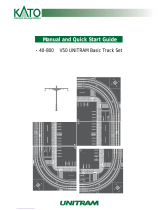Page is loading ...

15mm Medieval Merchants House
B15-MD-007
Please read these instructions fully before starting construction.
PVA or equivalent glue will be required to stick sections together.
Sand paper can be used to gently clean any joints.
A sharp modelling knife will be required to remove sections from the sprue. Please use knives with due care and remember
to cut away from yourself at all times.
During the construction of this model, you may find it convenient to use pegs / elastic bands to hold pieces in place while
you allow glue to dry.
You may find it easier to paint portions of this model BEFORE construction – please see the end of the document for info
about this.
Take the floor and inner walls from the sprue (as
seen above).
Glue the walls to the base with all the etched detail
facing inwards.
Starting with the door framework, glue this into
place aligning the door supports into their spaces.
Note: This piece will be flush to the left hand side
of the wall and extend out by about 3mm on the
right.
Work around the building, gluing each frame into
position, making sure the spaces for the windows
align correctly.
Then take the insert sections from the sprue and
glue them into the spaces in the framework.
Note the insert pieces for each wall are in their
relative positions on the sprue.

Porch
Take the inner walls and base from the sprue.
Glue them together as shown above – note the
pieces have a small “+” on them which should be
on the outside of the model.
Glue them to the base as shown.
Take the frame pieces.
Glue these to the model starting with the two side
pieces which go flush with the rear of the model.
Add the insert pieces.
Upper Floor
Take the inner walls and floor from the sprue.
Glue the walls to the base with all the etched detail
facing inwards.
Take thre frames
And using the same method as the lower floor, glue
these into place.

Add the insert panels.
Roof
Take the roof plate, beam and side sections from
the sprue.
Place (do not glue) the side sections into the roof
place and glue the beam between them as shown.
Take the roof pieces for one side of the roof and
starting from the top, glue each one to the side
supports.
Repeat this with the other side of the roof.
Leave to dry.
If you wish to paint your roof, we suggest you do
that now. Remove the roof plate (to prevent paint
getting onto it) then follow the painting
instructions (see later).
After painting glue the roof plate into position.
Add the framework into the gap at each end of
the roof.
Then glue the inserts into place.

The finished building.

Painting
It is much easier to paint sections of this building prior to assembly.
For the inner walls we removed these from the sprue and then sprayed them white with a standard car undercoat spray
paint.
Once dry we then painted over the etched woodwork with a pale brown colour.
The outer frames remained unpainted.
The insert panels were all left on the sprue and sprayed with a standard white car undercoat.
The lower part of the ground floor inserts can either be done as brick or stone:
• If brick, then after the white undercoat has dried, drybrush with a terracotta colour (standard DIY emulsion paint).
• If stone, then once the upper portions of the inserts have been added to the model, the lower portions were then
resprayed with a black car undercoat before being dry brushed with 2 different shades of grey (DIY emulsion paint)
The roof was partially assembled – roof pieces glued to the end sections before spraying the entire roof with a black car
undercoat spray.
If slate, then drybrush with a dark grey colour, before dry-brushing with a lighter grey (DIY emulsion).
If pantile, then drybrush with a chocolate brown colour before dry-brushing with a red colour (DIY emulsion)
/











